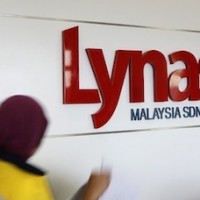The High Court has kept on hold the temporary operating license (TOL) granted to Lynas Corp’s landmark rare earth plant, by delaying until October 10 a decision on whether it will consider judicial reviews to permanently block production.
The Australian mining firm said the Kuantan High Court’s decision leaves the TOL suspended until October 10, extending the one-week halt it announced on September 25.
Once operational, the Lynas plant would be the world’s biggest refinery for rare earths, and the first to be set up outside China in nearly three decades. It would allow Malaysia to develop its own expertise in processing rare earths, a technology that few countries possess.
The plant has been ready to fire up since early May, but it has been the target of a vicious misinformation campaign by Opposition-supported groups seeking to discredit the Malaysian Government.
Protestors from the group Save Malaysia Stop Lynas want the High Court to suspend the temporary license until two judicial review cases challenging the government’s decision allowing the plant to operate are heard.
“We’re staying optimistic,” Tan Bun Teet, a spokesman for SMSL, told Reuters after the court decision.
“The court has set an early hearing for October 10 and it looks like they want to resolve it quickly,” he added.
Yet the group’s previous attempts to stop the Lynas plant have failed, as the large scientific evidence shows the plant is indeed safe, with even experts from the UN’s International Atomic Energy Agency (IAEA) declaring it safe last year.
Market analysts believe these legal challenges would not succeed in stalling the plant.
“We believe the risk to the license being overturned is low, given the review process undertaken in approving the licence and results of court proceedings finding in favor of Lynas to date,” Macquarie was quoted recently by The Wall Street Journal.
Lynas had received the TOL from the Malaysian Atomic Energy Licensing Board (AELB) on September 5, enabling it to start production as early as October.
The RM2.5 billion refinery could produce about a sixth of the world’s supply of rare earths when it reaches full production. Rare earths are used in products ranging from electric car batteries to smartphone touch screens.

